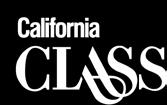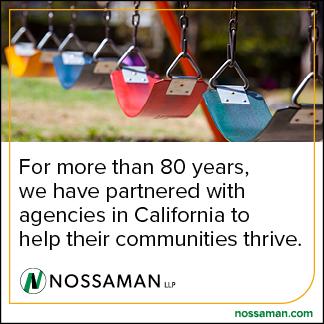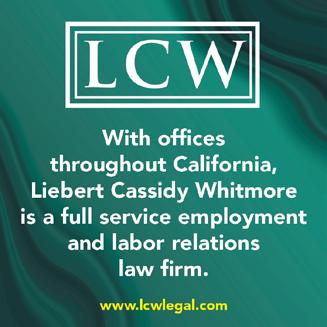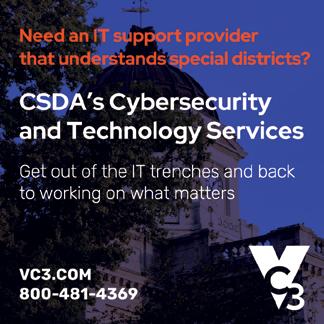






The California Special Districts Alliance is a collaborative partnership between the California Special Districts Association (CSDA), the CSDA Finance Corporation (CSDAFC), and the Special District Risk Management Authority (SDRMA). These three highly respected statewide organizations join forces to help special districts in California better serve their communities.

CSDA Board and Staff
OFFICERS
ELAINE MAGNER, PRESIDENT, Pleasant Valley Recreation and Park District
PETE KAMPA, CSDM, VICE PRESIDENT, Groveland Community Services District
LORENZO RIOS, SECRETARY, Clovis Veterans Memorial District
DON BARTZ, CSDM, TREASURER,
Phelan Pinon Hills Community Service District
RYAN CLAUSNITZER, CSDM, PAST PRESIDENT, Alameda County Mosquito Abatement District
MEMBERS OF THE BOARD
VINCENT FERRANTE, Moss Landing Harbor District
JERRY L. GILMORE, Truckee Sanitary District
CURTIS JORRISTMA, Hilmar County Water District
JO MACKENZIE, Vista Irrigation District
ANTONIO MARTINEZ, Contra Costa Water District
NOELLE MATTOCK, El Dorado Hills Community Services District
GREG ORSINI, McKinleyville Community Service District
PATRICK OSTLY, North of River Sanitary District #1
FRED RYNESS, Burney Water District
ARLENE SCHAFER, Costa Mesa Sanitary District
KIMBERLEE SENEY, Gold Mountain Community Services District
STAFF
NEIL MCCORMICK, Chief Executive Officer
MEGAN HEMMING, Chief Professional Development Officer
MUSTAFA HESSABI, Chief Counsel
KYLE PACKHAM, Chief Advocacy & External Affairs Officer
CASSANDRA STRAWN, Chief Member Services & Communications Officer
RICK WOOD, Chief Finance & Operations Officer
TOMICKO ABELLA, Member Services Representative
AARON AVERY, Director of State Legislative Affairs
ANNA CALLAHAN, Legislative Assistant
EMILY CHA, Database & Online Communities Specialist
MARCUS DETWILER, Legislative Representative
BRENT FARRAR, Design & Websites Manager
AUBREY GOHL, Member Services Representative
VANESSA GONZALES, Communications Specialist
JOSE GUERRERO, Graphic Design/Video Specialist
COLLEEN HALEY, Public Affairs Field Coordinator
CASSIE HASKINS, Member Services Representative
LILIA M. HERNANDEZ, Associate Legislative Analyst
MICHAEL MEYER, Senior Member Services Specialist
CHRIS NORDEN, Public Affairs Field Coordinator
RICHELLE NOROYAN, Public Affairs Field Coordinator
CHRIS PALMER, Senior Public Affairs Field Coordinator
AMBER PHELEN, Management Analyst
RACHAEL POPPINO, Professional Development Coordinator
OLIVIA ROBERTSON, Member Services Specialist
JENNIFER SMITH, Professional Development Coordinator
OPHELIA SZIGETI, Legislative Analyst
ANTHONY TANNEHILL, Legislative Representative
ERASMO VIVEROS, Public Affairs Field Coordinator
DANE WADLÉ, Senior Public Affairs Field Coordinator
KRISTIN WITHROW, Communications Specialist
SANDY SEIFERT-RAFFELSON, PRESIDENT, Herlong Public Utility District
ROBERT SWAN, VICE PRESIDENT, Groveland Community Services District
JESSE CLAYPOOL, SECRETARY, Honey Lake Valley Resource Conservation District
ROBERTY HOUSLEY, Midway City Sanitary District
MIKE SCHEAFER, Costa Mesa Sanitary District
TIM UNRUH, CSDM, Kern County Mosquito & Vector Control District
THOMAS WRIGHT, Clovis Veterans Memorial District
LAUREN BRANT, Public Financial Management
DEREK BURKHALTER, Bickmore Actuarial
CHARICE HUNTLEY, River City Bank
FRANK ONO, iFish Group, Inc.
ANN SIPRELLE, Best Best & Krieger, LLP
KARL SNEARER, Apex Insurance Agency
DOUG WOZNIAK, Alliant Insurance Services, Inc.
BRIAN KELLEY, MBA, ARM, Chief Executive Officer
DEBBIE YOKOTA, AIC, Chief Risk Officer
MATT CLUTTERBUCK, Chief Financial Officer
WENDY TUCKER, Underwriting/Program Manager
ALANA LITTLE, Health Benefits Manager
ENRIQUETA (HENRI) CASTRO, Risk Control Manager
ROBERTO LOZANO, Liability Claims Manager
ALLISON BATEMAN, PHR, HR/Office Manager
PETR KOVALCHUK, Finance Manager
MARIA WILLIAMS, Member Services Manager
MARGARITO CRUZ, Senior Accountant
DANNY PENA, Workers’ Compensation Manager
ERIC LUCERO, Senior Risk Control Specialist
TERESA GUILLEN, Member Services Specialist II
MICHELLE BROWN, Health Benefits Specialist II
CANDICE RICHARDSON, Management Analyst
KEITH IKAMI, Claims Examiner I
LISA SANDOVAL, Member Services Specialist I
LILLI VINN, Accounting Technician
MARTHA WARREN, Senior WC Examiner
TAMARA BAKKIE, Senior WC Examiner
JOHN PESHKOFF, Senior WC Examiner
MARIETTA HARRISON, WC Examiner
Special District Risk Management Authority 1112 I Street, Suite 300 Sacramento, CA 95814
tel: 800.537.7790 www.sdrma.org
CSDAFC Board and Staff
OFFICERS
JO MACKENZIE, PRESIDENT, Vista Irrigation District
VINCE FERRANTE, VICE PRESIDENT, Moss Landing Harbor District
ARLENE SCHAFER, SECRETARY, Costa Mesa Sanitary District
GLENN LAZOF, TREASURER, Regional Government Services Authority
MEMBERS OF THE BOARD
JULIE JOHNSON, Rainbow Municipal Water District
MATTHEW MCCUE, Coachella Valley Cemetery District
GREG ORSINI, McKinleyville Community Service District
CONSULTANTS
RICK BRANDIS, Brandis Tallman, a Division of Oppenheimer & Co. Inc.
JEFF LAND Brandis Tallman, a Division of Oppenheimer & Co. Inc.
DAVID MCMURCHIE, CSDAFC Legal Counsel
WILLIAM MORTON, Municipal Finance Corporation
STEFAN MORTON, Municipal Finance Corporation
ALBERT REYES, Kutak Rock LLP
NICOLE TALLMAN, Brandis Tallman, a Division of Oppenheimer & Co. Inc.
STAFF
NEIL MCCORMICK, Chief Executive Officer
MICHAEL MEYER, Senior Member Services Specialist
AMBER PHELEN, Management Analyst
RICK WOOD, Chief Finance & Operations Officer
CSDA Finance Corporation 1112 I Street, Suite 200, Sacramento, CA 95814 tel: 877.924.2732 www.csdafinance.net
California Special Districts Association 1112 I Street, Suite 200 Sacramento, CA 95814
toll-free: 877.924.2732 www.csda.net


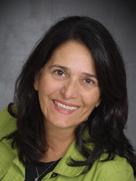
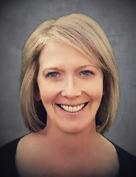



PRE-CONFERENCE WORKSHOP #1: The Art of Electronic Records Management
PRE-CONFERENCE WORKSHOP #2: Policy and Procedure Writing
PRE-CONFERENCE WORKSHOP #3: Supervisory Skills for the Public Sector*
*Qualifies toward the SDLF Essential Leadership Skills Certificate Program
Location: San Diego Marriott Mission Valley
Date: Monday, October 21
Time: 9:00 a.m. - 4:00 p.m.
Price: $285 CSDA Members / $430 Non-member
Optional – Includes lunch, pre-registration & pre-payment required.
2024 Board Secretary/Clerk Conference
October 21-23, 2024 – San Diego, CA
Whether you are a new or an experienced board secretary/ clerk, continuing education is essential to keeping current on the many aspects of your job. Come for the first time to earn your certificate and return each year to stay current and expand your knowledge. Attendees won’t want to miss Laurie Guest - this year’s keynote as she shares her insights into making smart, effective choices to improve guest encounters and staff satisfaction. Other sessions will showcase topics like conflicts of interest, redistricting, artificial intelligence, public speaking, law updates, cultural intelligence, and more. You are invited to participate as a first-time attendee to earn your certificate and come back year after year to advance your knowledge of special districts.
Register now at boardsecretary.csda.net.
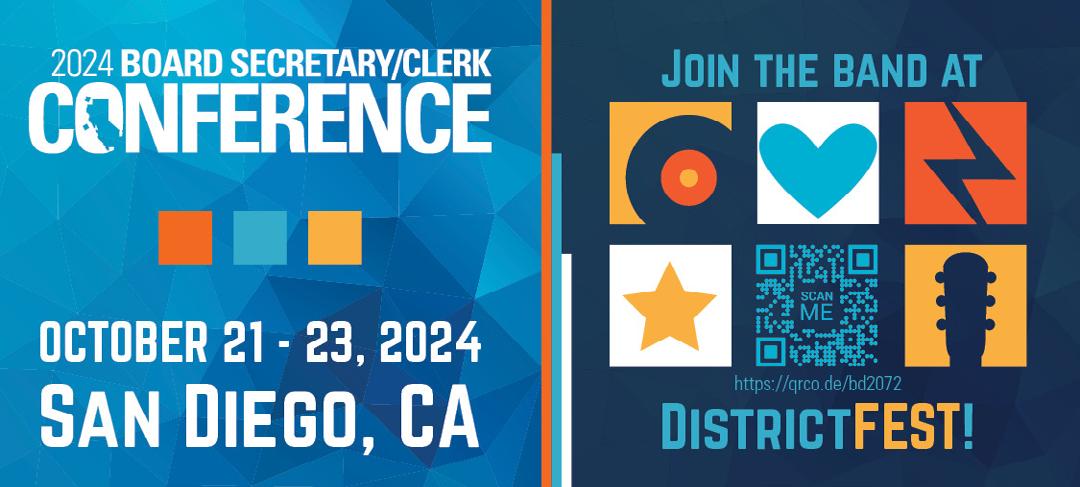
We are thrilled to announce the launch of CSDA’s innovative new mobile application, CSDA - The Hub. This state-of-the-art app is designed to provide members with unprecedented access to exclusive content, professional development opportunities, timely advocacy updates, district news, and much more.
The Hub is a game-changer for CSDA Members. It combines connectivity and resource accessibility to ensure that members are equipped with the tools they need to succeed in their roles year-round…in an easy to access tool, when they need it! Here are some of the key features and benefits that make The Hub an indispensable tool for CSDA members:
1. Exclusive Content Access: Members can now access a wealth of exclusive content, including real-time reports, policy briefs, best practice guides, and more. This ensures that you have the most current and relevant information at your fingertips.
2. Professional Development Opportunities: The Hub offers a variety of professional development resources, from webinars and online courses to workshops and seminars, all through the new app. This feature is designed to support continuous learning and skill enhancement, helping our members to stay ahead in their careers and effectively navigate the evolving educational landscape.
members to be proactive and be engaged in shaping the future of special districts in California.
4. District News and Updates: Members will automatically receive the latest news and updates from districts across the State. This feature fosters a sense of community and collaboration, allowing members to learn from each other’s experiences and successes.
5. Event Integration: In addition to its year-round functionalities, The Hub will serve as the official event app for ALL of CSDA’s major events. This integration will streamline event experiences by providing agendas, speaker information, session materials, and networking opportunities, all within a single, user-friendly platform.
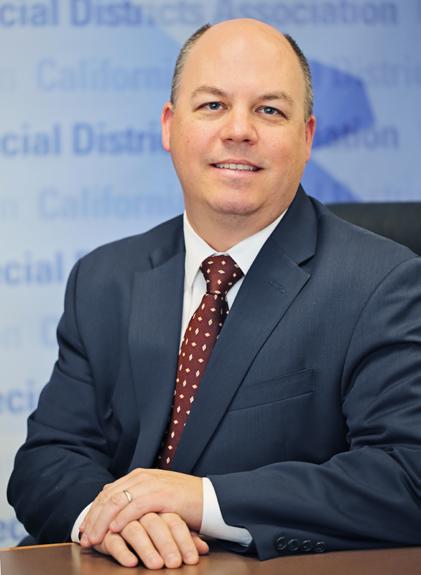
Neil McCormick, CEO
3. Timely Advocacy Updates: Staying informed about legislative changes and advocacy efforts is crucial. The Hub provides real-time updates on advocacy efforts, policy changes, and legislative developments, enabling
CSDA members can download CSDA - The Hub from your preferred app store and log in using membership credentials. The app is available for both iOS and Android devices, ensuring broad accessibility. Once logged in, members will be able to personalize their experience by selecting areas of interest, ensuring that the most relevant updates and resources are ready at the press of a button.
As The Hub continues to evolve, CSDA is committed to incorporating member feedback and adding new features to meet the changing needs of its members. This ongoing development will ensure that this valuable resource remains a cutting-edge resource, providing unparalleled support to CSDA members.
Download and login today!


Scan the QR code or search “CSDA - The Hub” on the Apple App Store or on Google Play.
Use the same email and password you use for www.csda.net.
CSDA - The Hub brings you quick access to: CSDA Communities
Advocacy
Publications
And many more CSDA
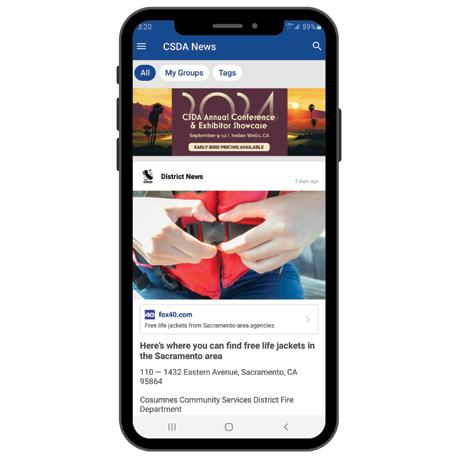
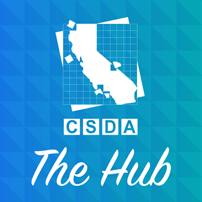
“CSDA
Discover our new mobile app, CSDA – The Hub! Have you explored it yet? The CSDA mobile app expands access to exclusive member content, events, news articles, and CSDA Communities. Stay connected, informed, and engaged with the CSDA community anytime, anywhere from the ease
of this mobile app! Download it to your phone now from your app store. Search “CSDA-The Hub” on the Apple App Store or Google Play to download it to your phone. For assistance, email membership@csda.net.
See advertisement on previous page...
On May 31, the CSDA Board of Directors unanimously approved a chapter affiliation agreement with the newly expanded Sonoma-Napa Bi-County Special Districts Association (SNBCSDA). The Sonoma Chapter has existed for the past two years, but just recently extended an invitation to Napa members to join them.
In addition to the new Sonoma-Napa Chapter, there are six other CSDA Affiliated Chapters in CSDA’s Bay Area Network, representing Alameda, Contra Costa, San Mateo, Marin, Santa Clara and Solano Counties, as well as twentysix chapters statewide.




CSDA is committed to establishing connections with special districts throughout California with its District Networks program and is pleased to welcome Napa County special districts to the fold.

This digital platform is tailored specifically to the needs and interests of CSDA water district members, providing them with a dedicated space to exchange insights, share best practices, and address common challenges related to water management, operations, administration, and governance. Join today to collaborate, learn, and engage with your peers!
https://bit.ly/csda-water
CSDA Annual Conference & Exhibitor Showcase:
Palm Springs area
September 9 – 12
Board Secretary/Clerk Conference:
San Diego
October 21 – 23
Special District Leadership Academy Conference: San Rafael
November 3 – 6
Go Beyond Managing Safety, Manage Risk
August 15, Eureka
SDLA Governance Foundations
September 9, Indian Wells
So, You Want to Be a General Manager?
September 9, Indian Wells
Virtual Workshop: Supervisory Skills for the Public Sector
September 18 - 19
Go Beyond Managing Safety, Manage Risk
September 25, Monterey
Lease Purchase Financing: Participants & Process
August 6
Demystifying LAFCos
August 13
How to Develop Your Agency’s Succession Plan
September 24
Virtual Workshop: SDLA Module 3: The Board’s Role in Finance
September 25 - 26
Virtual Quarterly Leadership Book Club: The Leader Who Had No Title
September 27
Virtual Workshop: Organizational Development
October 2 - 3
Overview of Special District Laws
October 8, Sacramento
Virtual Workshop: HR Boot Camp for Special Districts
October 9 - 10
Sexual Harassment Prevention for Supervisors
October 1
Sexual Harassment Prevention for Non-Supervisors
October 8

Send articles or ideas to membership@csda. net for consideration in the California Special Districts magazine, CSDA eNews, the CSDA website, or on our social media channels.
We are always on the lookout for articles and topic ideas.
For editorial inquiries, contact CSDA Communications Specialist Vanessa Gonzales, at 877.924.2732 or membership@csda.net.
For advertising inquiries, contact CSDA at 877.924.2732 or advertising@csda.net.
California Special Districts Association 1112 I Street, Suite 200 Sacramento, CA 95814 toll-free: 877.924.2732 www.csda.net
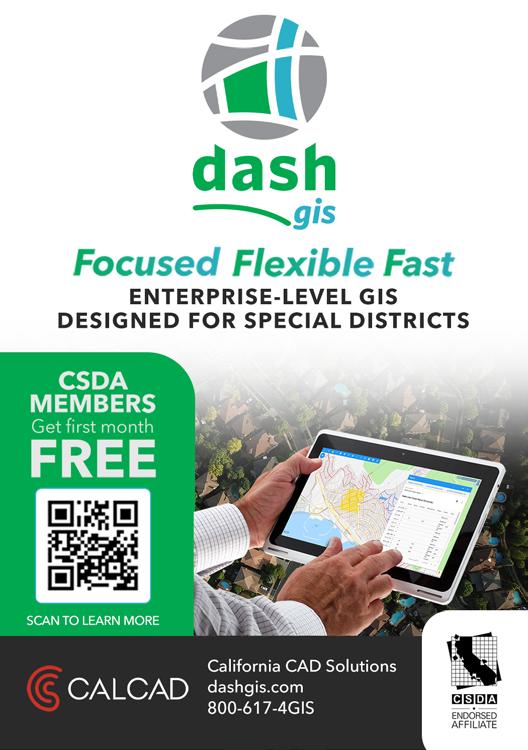

A CSDA gold level business affiliate, Tyler Technologies provides special districts with software solutions to bring operational efficiency to your district. If your district operations rely on software that is a decade old (or more!), or your current system is bogged down or inefficient, it might be time to see what’s available at Tyler Technologies. Their solutions list is impressive: outdoor recreation (class registration, instructor and volunteer coordination); land & official records (public record requests, record management); public safety (first responder support, handheld technology); community development (permitting, planning) and more. If you believe your software game is out of touch with current technology, visit Tyler Technologies website at www.tylertech.com to see for yourself.

By Margaret Moggia, Finance Manager, Town of Discovery Bay
Why are public agencies required to complete an annual financial audit? Aside from requirements set forth through State Code 53891 to file with the State Controller’s Office, an agency may need to submit audited financial statements as part of a grant requirement or a continuing disclosure certificate for public debt issued. Audits instill confidence in governing boards, the public, and other stakeholders knowing that the financial statements are fairly stated, but audits can and should bring more value to a public agency.
As part of the process, auditors review a public agency’s internal control environment and make suggestions that can improve and safeguard the processing, access, and reporting of finance department functions. It’s important to change the perspective of audits as not just a necessary task but one that can enhance an agency’s response to address matters that protect the fiduciary oversight for the governing board and staff.
How can an agency find a suitable partner to deliver a scope of work that completes the necessary but enhances the experience? The Government Finance Officers Association (GFOA) has established a best practice on their website that helps public agencies discern what approach and factors to consider.
1. Identify the scope that meets your agency’s needs and circumstances.
2. Undertake a competitive process (also make sure you follow your agency’s procurement policy).
3. Consider multi-year audit contracts (efficiency and potential cost savings).
4. The primary evaluation should be an auditor’s ability to perform a quality audit.
5. Price should not serve as the sole criterion for the selection.
6. Auditor should have demonstrated commitment and experience to the government sector.
The selection process usually begins with developing a request for proposal – this is where you can reach out to your colleagues for a template but be sure to adapt to your own financials. Use the CSDA Communities to find out their scope or audit firm recommendation, and also look to the California Society of Municipal Finance Officers website that also has a list of audit personnel.
After the competitive selection process, be sure to evaluate their firm and team experience, audit approach, and cost. As part of their proposal, ask the audit firm to share references, and check those references. The public agency may also want to interview the firm to ask about their familiarity with your sector, understand your needs, and share their knowledge of GASB requirements. Finally, find an audit firm that will partner with your agency.
For more information and resources, visit gfoa.org/materials/audit-procurement and CSMFO.org
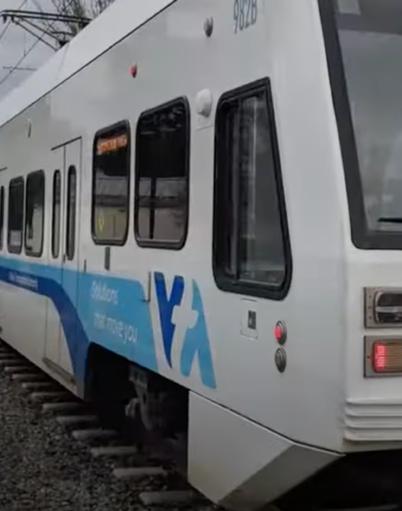


The Districts Make The Difference annual student video contest saw big results for California this year. Just in time for the end of the school year, these students captured scholarships for themselves and their teachers, and the top two were both from California!
U.S. high school students across the country were challenged to learn about special districts, either broadly or a specific district in their community, then create a 60-second video explaining what they’d learned. The contest received videos from 20 states with a variety of themes and videography techniques. The videos showcased student creativity and demonstrated a strong grasp of new knowledge about special districts in the U.S.
Ten finalists were selected by a panel of special district professionals who enjoyed all the creative submissions and ultimately settled on the top ten based on accuracy of information, creativity and originality, and entertainment and video quality.
Aradhana S. from Monta Vista High School in Cupertino, CA with a video that included her dog’s endorsement of the convenience offered by the Santa Clara Valley Transportation Authority buses.
Jacob X. from Mission Hills High School in San Marco, CA who had a little help from some friends creating a technically savvy video highlighting the fresh air and public health offered by park and recreation districts.
Evie K. from Fairview High School in Fairview, MT with an original cartoon that included a laundry list of district types offering essential services across the U.S.
The winning videos are now available at districtsmakethedifference.org.



For the past 28 years, I have developed a niche market, providing advisory services and customizing investment management strategies for 38 special districts in California. Call me today for a complimentary consultation.
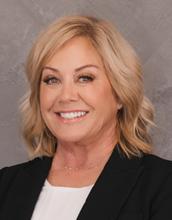
Nicolaus &
Sandra Hedstrom Wheeler Vice President/Investments
(805) 903-1065 direct (877) 816-1231 toll-free
sandra.wheeler@stifel.com www.sandrahedstromwheeler.com 4460 Broad Street, Suite 210 San Luis Obispo, California 93401

www.csda.net/support How do I register for....?


By Laurence Wiener1 and Katherine Read2, Richards Watson & Gershon
Social media sites have become an essential tool for anyone who wishes to share with their friends and others information regarding birthdays, anniversaries, vacations and, perhaps, the latest news regarding their job. Of course, over the last several years local government officials, including special district officials, have realized that social media platforms also make communication with constituents extremely convenient. But sharing information about one’s job is slightly different for public
officials. When public officials write about their role in government, it raises First Amendment issues, including whether the author of the social media site must allow anyone to comment on issues related to their public job. So, special district officials must be cognizant of whether they are creating a social media site that conveys First Amendment rights to members of the public, who can then comment on the social media site with relative impunity. In the past, in California, it was difficult for public officials
to differentiate their personal social media, from which they could exclude anyone, from their official social media, which conferred First Amendment rights on anyone visiting their social media sites.
However, after the recent ruling in the United States Supreme Court, Lindke v. Freed, 601 U.S. 187 (2024), officials now have clearer direction as to how to keep their social media sites “personal” and not expose their social media sites to a First Amendment challenge. Mr. Freed was the City Manager of Port Huron, Michigan. Freed maintained a personal Facebook page and posted about his personal life and his job. Once the COVID-19 pandemic began, Freed also posted both personal and job-related information about COVID-19. Mr. Lindke opposed the city’s position on COVID–19 and unequivocally expressed his displeasure on Freed’s Facebook page. Freed, first, deleted some of Lindke’s comments and then banned him from the Facebook page. Lindke sued alleging that he had a First Amendment right to comment on Freed’s Facebook page. Ultimately, the Supreme Court articulated a rule to follow but sent the matter back to the lower courts to determine whether Lindke truly had a right to comment on Freed’s Facebook page.
The Court determined that officials’ social media accounts will be considered personal, and not subject to the First Amendment claims of others, unless the official (1) possesses actual authority to speak on the agency’s behalf (“state action”), and (2) purports to exercise that authority when the public official posts on social media.
The Supreme Court reasoned that public officials themselves have the “First Amendment right to speak about their jobs and exercise editorial control over speech and speakers on their personal platforms.” However, this is not the case for social media activities that are considered state action. Determining whether a public official’s social media activity constitutes state action, which prevents blocking specific comments or commenters, is a “factintensive inquiry.” But, if the official does not possess actual authority to speak on behalf of the agency, the
appearance or function of the social media account will not matter.
To create a presumption of “personal use,” the Court suggests a social media account carry a label (i.e., “this is the personal page of [public official]”) or a disclaimer (i.e., “the views expressed are strictly my own”) but the presumption is not irrebuttable. Below, are two “Key Takeaways” that officials should consider when posting on their personal social media accounts to avoid the risk of liability if they decide to block a comment or commenter:
• Avoid State Action. For a post to be state action, the official must have actual authority to speak on behalf of the public agency through statute, ordinance, regulation, custom, or usage. To qualify as “custom” or “usage,” the official’s social media use on behalf of the public agency must be “permanent and well settled” and that authority must extend to the type of speech in question;
• Emphasize Personal Use. The Court will look at several factors such as: biography description (“personal page” v. “official page”), page maintenance (“individual” v. “public agency”), the type of posts (“repetition of readily available information” v. “public announcement unavailable anywhere else”).
Officials should discuss the use of their social media accounts with legal counsel to determine if it is “official” or “personal.” If a social media account is “personal” then a public official can decide which comments are allowed on the site and who can be banned from the site. However, if the social media account is “official” then a public official must be cognizant of the First Amendment rights of anyone who visits their social media site.
1 Shareholder, Richards Watson & Gershon and City Attorney for the City of Beverly Hills and General Counsel to the Las Virgenes Malibu Council of Governments
2 Associate, Richards Watson & Gershon
On May 21-22, 2024, over 200 special district board members, general managers, fire chiefs, parks directors, water specialists and other special district officials came together in Sacramento to advocate on the top legislative priorities facing special districts. Major topics included the State Budget, climate bond and development related fees, and contracting legislation.
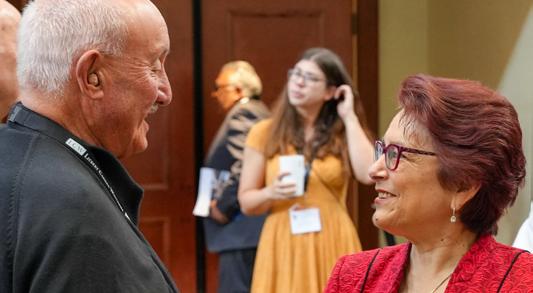
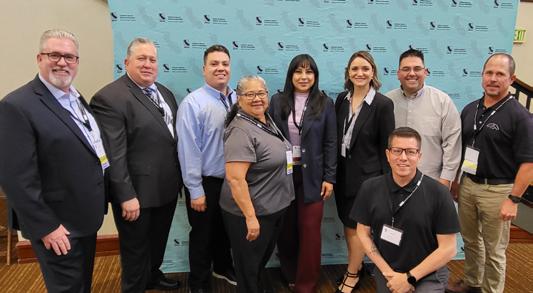
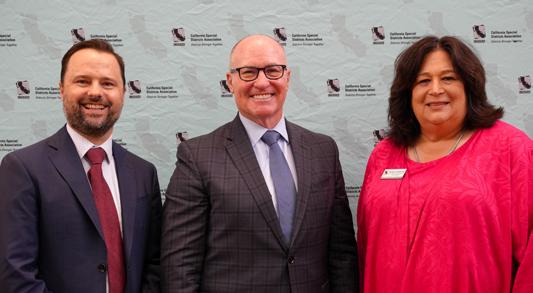
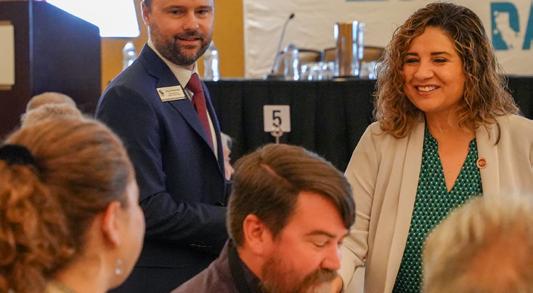
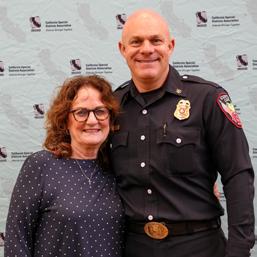

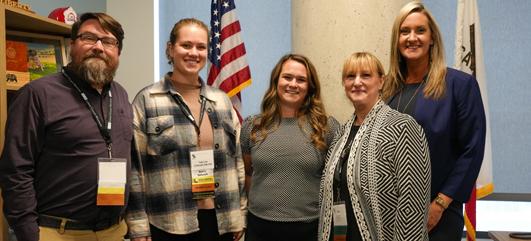
Jim Markman
Roxanne Diaz
Ginetta Giovinco
Craig Steele
Dave Fleishman












By Christy Jewell, Senior Program Manager, Institute for Local Government
Every day, the media highlights the struggles of organizations of all sizes in filling crucial positions. Nowhere is this more acute than in local government, where nearly 70% of entities face limited hiring pools, unprecedented levels of resignations and turnover, and the imperative to find and groom the next generation of leaders. To address these workforce challenges, special districts must pioneer novel approaches to attract a broader, more diverse, pool of qualified candidates and foster community involvement. Already, workforce shortages are significantly impacting the vital services that local governments are tasked with delivering.
Positions within the public sector can offer competitive compensation, comprehensive benefits, and the opportunity to make a meaningful impact in one’s local community—yet awareness of these “hidden gem” roles, especially about special districts among historically marginalized groups, remains a challenge. So, how can special districts ensure equitable and mutually beneficial access to these important positions?
Public agencies have long explored programs like internships with younger talent, but now a promising solution gaining momentum on both national and statewide levels is the adoption of non-traditional registered apprenticeships for positions that are in high demand and notoriously difficult to fill. While apprenticeships have long been associated with public safety and the construction and building trades, they are also starting to gain momentum in “non-traditional” sectors such as human resources, finance, manufacturing, and IT. Through inclusive outreach strategies, apprenticeship programs can democratize access to top-notch training and quality jobs for individuals from diverse backgrounds, all while meeting local government’s evolving needs.
Apprenticeships are tried-and-tested vehicles for skill development, employing an “earn and learn” model. By aligning training directly with job requirements, public agencies can ensure that essential and unique skills are acquired and honed, resulting in industry-recognized credentials and a pipeline of talent poised to ascend through the ranks of leadership. This is especially relevant for out of school job seekers without college degrees due to lack of access or affordability. For that demographic, the earn-and learn apprenticeships model can offer a variety of pathways to thrive in local government careers.
The Institute for Local Government (ILG) has secured multiple public and private grants to establish a new nontraditional registered apprenticeship program tailored to the hiring needs of local governments. Serving as an Apprenticeship Intermediary, ILG will provide a virtual one-stop for local governments interested in learning
about non-traditional registered apprenticeships. From research and toolkits to possible partners and funding, the new resource will help local agencies identify a path that works for them.
As part of the bold workforce initiative, ILG will also launch a demonstration pilot where 5-10 jurisdictions will test registered apprenticeships of 5-7 high demand nontraditional occupations. ILG will assist with all elements of the program development and implementation with the pilot jurisdictions to document the process and identify possible improvements for the State Division of Apprenticeship Standards.
In its capacity as an Intermediary and Program Sponsor, ILG will actively facilitate and coordinate relationships between the pilot jurisdictions (employers), educational institutions, and labor unions or collective bargaining units, as appropriate. We’ll also coordinate registration of the occupations with State and/or Federal agencies and work to streamline the registration and implementation process to build greater capacity for our local agencies.
Governor Newsom has an ambitious target of 500,000 apprenticeships by 2029, and local governments have an opportunity to join the thousands of private sector businesses that are already engaged in this vital endeavor.
During this year’s CSDA Annual Conference, ILG will host a session to provide more information about how registered apprenticeships (or pre-apprenticeships) may help solve the occupational challenges many special districts are facing.
If your agency would like to learn more about nontraditional apprenticeships or has promising practices to share in our Resource Hub, please email apprenticeships@ ca-ilg.org.
About the Institute for Local Government: ILG is the nonprofit training and education affiliate of CSDA, CSAC and League of California Cities. Together with our affiliates, ILG serves over 2,500 cities, counties and special districts. ILG provides practical and easy-to-use resources so local agencies can raise their visibility and effectively implement policies on the ground.
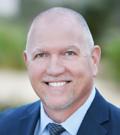
The Board of Directors of the Rancho California Water District approved the appointment of Jason Martin to the position of interim general manager, effective June 1, 2024. The appointment of Mr. Martin follows the planned resignation of the current general manager Robert Grantham.
“I’m honored to embrace the responsibilities of interim general manager at Rancho Water,” said Martin. “I look forward to guiding our outstanding team as they continue to move forward on important initiatives. Rancho Water is a leader in innovation and community stewardship, and I am committed to upholding and advancing our culture of excellence.”

With great honor, Metro Fire announced that Battalion Chief Scott Perryman was awarded the Distinguished Service Medal by the State Emergency Medical Services Authority for his leadership and efforts in providing services through the Mobile Integrated Health (MIH) program. Chief Perryman is at the forefront of the MIH movement and has used his success to become a leader at the local, state, and national levels.

Rocky Welborn
Rocky Welborn has joined West Valley Water District as their new Director of Engineering. A seasoned water professional with over 20 years of experience, Welborn has also worked at the Inland Empire Utilities Agency and East Valley Water District.
“I am thrilled to be joining the West Valley Water District team,” said Welborn. “I look forward to drawing upon my industry experience to lead our dedicated engineering team as we continue to pursue, implement, and enhance the District’s water systems and invest in our infrastructure to ensure water reliability for the community.”
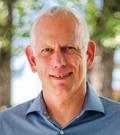
The Western Placer Waste Management Authority (WPWMA) announced the hiring of the agency’s first general manager. Scott Scholz will fill the newly created position, reporting directly to the agency’s Board of Directors comprised of elected officials from the WPWMA member agencies - Placer County and the cities of Lincoln, Rocklin and Roseville.

Desert Water Agency recently welcomed Victoria Llort as its new Director of Public Affairs and Conservation. In this role, Llort will oversee public awareness, conservation, legislative and community involvement programs.
“I am honored to join the hardworking team at DWA and continue to champion water matters for the state and region,” said Llort. “As we look to the future, ensuring healthy water supplies and resiliency via conservation, education, policy and new delivery system projects is crucial. I look forward to working with our partners and the community to build on the efforts already taking place.”

The Turlock Irrigation District (TID) Board of Directors has appointed Brad Koehn as General Manager, effective June 21. Koehn will replace Michelle Reimers who announced her resignation on May 31, after an 18-year career with the district. Koehn has been with TID for 13 years and has held various leadership roles, most recently serving as the Chief Operating Officer since 2020.
“I am sincerely honored to serve as General Manager and thank the Board for their confidence in me to help lead this organization that is such a foundational part of our community,” said Koehn. “I look forward to guiding TID’s dedicated and skilled workforce, and together furthering the progress the District has made and continuing to meet our mission of providing reliable and affordable water and power for our community.” Koehn will be the ninth General Manager in the 137-year history of TID.
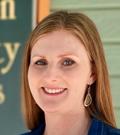
The Templeton Community Services District has announced Lori Azeem as the new district engineer. Azeem comes to the district with a civil engineering degree from Cal Poly San Luis Obispo, a master’s degree from the University of Cambridge, and 20 years of experience in the engineering field.
“We are thrilled to have Lori join the district in this capacity,” says General Manager Jeff Briltz. “Her background, interests, and desire to serve the Templeton community combine to make Lori a great fit for Templeton CSD at this time.”
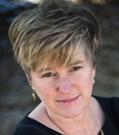
The National Special Districts Coalition (NSDC) announced Chantal Unfug as its new National Public Affairs, Outreach and Engagement Director. Chantal brings unparalleled expertise in local government, coalition building, consensus building, and public policy to this pivotal role. Her extensive experience and proven track record will be invaluable as NSDC continues to advocate for the needs and interests of special districts at the federal level.
The NSDC Executive Committee released this statement: “We are thrilled to welcome Chantal Unfug to the NSDC team. Her deep understanding of local government dynamics and her ability to build strong, effective coalitions will significantly enhance our federal advocacy efforts.”
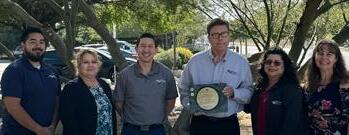
West Valley Water District proudly announced they were awarded the Distinguished Budget Presentation Award from the Government Finance
Officers Association (GFOA) for the third consecutive year. The prestigious award recognizes outstanding efforts in preparing the fiscal year budget and underscores the recipient’s commitment to transparency and fiscal responsibility.
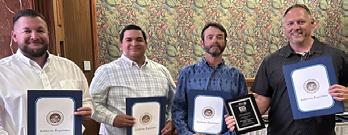
Springs Water District
Mission Springs Water District’s Emergency Response Team was honored with the Desert Hot Springs Rotary Club Big Heart Award for extraordinary effort in August 2023 when the area was deluged by Hurricane Hilary.
“These remarkable individuals exemplified courage and resilience in the face of adversity. Throughout the night, they were on the ground, tirelessly making repairs, shutting down valves, and troubleshooting issues to ensure the safety and wellbeing of our community,” said Board President Ivan Sewell. “Their actions prevented what could have been a catastrophe for thousands of our customers.”







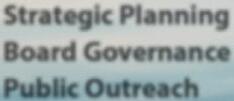









Senator Aisha Wahab represents the California 10th Senate District. She is Assistant Majority Leader; Chair of the Committee on Public Safety; Chair of Budget Subcommittee 5 on Corrections, Public Safety, Judiciary, Labor, and Transportation; and sits on multiple committees. The Senator is committed to policies that positively impact the lives of seniors, women, and children; as well as addressing housing affordability, civic engagement, education, and economic inequality.
How would you advise special districts who want to build on relationships with legislators and staff to best advocate for their district and community?
While there's often a focus on Sacramento, building a strong relationship with our district office is crucial for my team. We rely on them to relay district happenings to the capitol office, including constituent issues, grant support letters, and special events. Regular dialogue with our district office fosters cross-collaboration and support. Every special district can get to their legislators locally and legislators care about their district’s needs.
How do you see your background in local government informing your role as a new member of the recently reconstituted Senate Local Government Committee?
My time on Hayward City Council is a huge asset to my role as a policymaker and within the Local Government Committee. In fact, I’d recommend for those interested in elected office to serve locally to ensure they have the wide breadth of knowledge needed to tackle many issues in the State of California. It’s easy to criticize cities, but when you open the books and see the financial obligations they have, the contracted agreements, whether a charter city or otherwise, the services required, the ballot measure language on funding, the nuances that exist –local government is a balancing act. Understanding the interconnectivity of cities and counties and all the agencies operating in and round them is a huge asset for the Senate Local Government Committee. State laws being proposed
affect cities and I want to ensure that we defend local control where appropriate and also push for localities to do more where they can.
What are your current and long-term policy priorities, particularly as they relate to the governance and operations of special districts and other local governments?
Housing is the issue that I think impacts all Californians. We’re still having conversations on the recent Supreme Court ruling regarding impact fees. Impact fees are critical to infrastructure, so we’re trying to talk to our cities and understand what their concerns are regarding this ruling. We’re also tracking the Johnson v. Grants Pass case, which could have huge implications for how jurisdictions respond to homelessness across this state. Beyond that, I want to figure out how to encourage rent stabilization policies. Rent stabilization is a local issue. We have work to do on the state level to improve the efficacy of rent stabilization as a tool but all the data we have shows that it is an effective tool for preventing and slowing displacement. My policy priorities are about helping vulnerable populations, supporting economic development, and accessing educational opportunities.
What specific challenges exist for communities in the Bay Area that may not exist in other parts of the state?
The nine Bay Area counties are becoming more and more interdependent as a region and no longer siloed. The Bay Area needs policies that focus on this to make transit, housing, and jobs more easily accessible for the common person. The qualification I like to highlight is that San Francisco doesn’t represent the entire Bay Area. My goal is to elevate my district in these policy conversations. I believe that COVID highlighted the leadership of each county differently but the needs in all counties are the same. I believe there needs to be more cohesion on big efforts to serve our diverse communities. We are the most diverse region when it comes to language, culture, socioeconomic standing, and education. It’s important to be able to be leaders, but also ensure the most vulnerable are prioritized first and foremost.

By Kristin Withrow, CSDA Communications Specialist
CSDA’s Annual Conference & Exhibitor Showcase is September 9 – 12 in Indian Wells, California. This year’s opening keynote address with Mike Rayburn asks the question, What If? We interviewed Rayburn to share some highlights from his topic before the conference.
Mike Rayburn is a two-time TED Talk Presenter, an innovative entrepreneur and Hall of Fame speaker who uses world-class guitar and comedy to teach change and innovation to corporations world-wide. He has headlined Carnegie Hall, headlined in Las Vegas, and performed more than 5,000 presentations in 20 countries on five continents. Rayburn is a regular on Sirius/XM and morning radio nationwide. He has performed as a guitarist with The Beach Boys and John Oates. Rayburn’s keynote is called “The ‘What If’ Experience.” You will learn three simple tools for harnessing your unrealized potential, creating and leading change, and becoming a virtuoso performer. Lastly, Rayburn promises you laugh a LOT!
Tell us about your Keynote Address for the Annual Conference & Exhibitor Showcase. It’s all about innovation, creativity and possibilitythinking. It’s all about the simple question of ‘What If?’
How can we challenge the status quo to look at things and find new ways to do what we do in a better way for radical problem solving?
It seems people, and certainly government agencies, tend to resist change. What’s your angle on getting people to be open to the idea?
I love it when I can get people to change their attitude toward change, to stop managing change and instead start to create change. The only way to manage change IS to create it. Time breaks everything. The graveyard of obsolescence shows all these different products, services, companies, careers people aspire to – all sorts of things that are now gone. Things change! I will illustrate my point using humor rather than a PowerPoint and statistics, so it’s a lot of fun.
What’s an important thing to know about change that people should keep in mind?
We all need to be able to re-examine how we do things. For example, one of the great modern questions is ‘will AI replace humans?’ The fact is AI will not replace humans, but humans with AI will replace humans without AI. We resist change that hurts, but we shouldn’t resist change
just because it’s change. If we are able to be better at what we do because of change, why not do it?
What do you tell people who are resistant to the concept of change? Those who see the hardship in it rather than the possibilities.
It’s about a new mindset; the ‘what if’ mindset. I teach how to look at the landscape that everyone sees but find the opportunities everyone else misses. In the carrot – and –stick concept, we focus on the carrot.
So, you help people find the “why” attached to the “what if?”
Yes, it’s a sense of purpose to why we do what we do that means everything to us. Look, it’s easy to get caught up in the day-to-day, in the numbers and the figures, and the complaints and people’s comments, and the media and everything else and forget there’s someone on the other end of what you do.
How does creativity play a role?
I want to revive the ability to think BIG about what we can do, how we can serve, how we go about what we do to serve - all of these things. My presentation is fun and interactive and will have the audience leaning into their own creativity to move from managing change to creating and leading change.
After his keynote presentation, Rayburn will be available to sign copies of his book “What If? Dare to DO More BE More and Reach Farther Than You Ever Thought Possible.” The book is available at MikeRayburn.com. In addition, CSDA will have a limited number of copies available for purchase at the conference.

Come hear more from Mike Rayburn at this year's CSDA Annual

September 9 – 12, 2024
The leadership conference for special districts you can’t afford to miss!
• Densely packed educational & networking opportunities
• 30+ breakout session options
• Variety of industry suppliers in the exhibit hall
• Curated special district-specific topics


By Kristin Withrow, CSDA Communications Specialist
Imagine a day that is preceded by a sound night of restful sleep. You awake feeling calm, rested and ready to start the day with a mindset of energized anticipation for the day ahead. It’s a workday, and you are eager to check some tasks off your To-Do list, the thought of a day of interaction with your co-workers invokes a sense of happy anticipation of the day ahead.
Now imagine another day when you awake begrudgingly to the blare of the alarm after a short night of restless sleep. You awake feeling heavy, your first thought is of the need for caffeine to simply gather the energy and mental alertness to face the day ahead. Thoughts of your To-Do list stir mild anxiety, and the forced pleasantries of dealing with co-workers brings a state of dread. The day is set, and it is one to be endured.
Our first scenario is a utopian scene of balance and clarity exemplifying a model of alertness and resilience. Your beautiful brain is humming with energy in the frontal lobe, and you are ready to seize the day and whatever comes with it. Our second scene is emblematic of a state of limbic
alarm: your cautious brain’s limbic system is on alert for threats to come. Your mindset is closed, the caution lights are flashing, and you are set to respond to every perceived threat that may (or may not) confront you.
Of course, we would all love to take up permanent residence in scenario one. But reality bites and humans must learn to live with our full brain responses, from the frontal lobe to the limbic system and all iterations and combinations of mental activity in between.
Our general session keynote speaker for the 2024 Annual Conference & Exhibitor Showcase will help us identify those various brain states and what to do about them.
Doctor Elizabeth Lombardo is one of the most influential experts on stress—and the impact it has on peak performance, mental well-being, and full, purpose-fueled life. Dr. E, as she is known, helps people identify how “The Red Zone”—critical moments of high stress—is shaping their behaviors, decisions, health, and overall performance. The psychological red zone is a mental state she describes as heightened levels of distress that cause us to shift our
mindset into the limbic zone of caution, suspicion, and defensiveness.
“In psychology, distress is any emotion you don’t want - anger, frustration, anxiety, worry, fear, guilt, shame, overwhelm,” explains Dr. E.
If we could map our distress level on a scale of 0-10, where 0 is no distress at all and 10 is the most distressed you have ever been, anything 7+ is the red zone. “When in the red zone, people are unable to process information rationally,” she warns.
Dr. E discusses the corresponding zones in the human brain that are in various mindsets. In the green zone, when perceived distress levels are 0-3, the frontal lobe is active. In this area, we can rationally take perspectives which allow us to face challenges with resilience. If we feel snubbed, we maintain our composure and can rationalize the perceived snub is not personal. Further, we can theorize the ‘snubbee’ was not intending to impose a personal sleight, but perhaps is having a challenged moment or a bad day. As the one who was (perhaps) snubbed, we can give the snubbee a pass on the indiscretion because we are in a balanced, calm, rational state while our brain is buzzing with energy in the frontal lobe.
Entering the red zone, our limbic system starts humming. This is our ‘fight or flight’ state that was originally observed by the physiologist Walter Cannon in 1915 when he noted the digestive system changes its activity during states of fear. Our brains enter this limbic state of activity when we are in heightened states of distress.
What’s more, our ability to solve problems changes as we move up the distress scale. Dr. E explains we go from seeing the good and challenging in situations when we are low on the distress scale, to seeing things through a negative lens as we move up.
“When we are in the ‘red zone’ of around 7-8 and up, our limbic system basically hijacks our rational thinking,” she explains. “Our ability to see different people’s perspectives is completely diminished because a red zone brain basically feels like it’s drowning. And a drowning brain can only focus on the problem at hand.”
As much as everyone would like to live in the green zone, red zones happen. Dr. Lombardo has some tips for what to do when your distress levels redline. She calls her threestep process “ACT out of the red zone.”
A is Apply your awareness: “How many times have we been in the red zone, and it wasn’t till later when we’re like,
‘oh, I was probably overreacting.’” She advises awareness is your first line of defense. When you know you’re in the red zone, she says “don’t let anything out of your mouth, because that’s when we regret saying things later, and don’t put anything in your mouth because that’s when

September 9 – 12, 2024 Indian Wells, CA
The leadership conference for special districts you can’t afford to miss!
• Densely packed educational & networking opportunities
• 30+ breakout session options
• Variety of industry suppliers in the exhibit hall
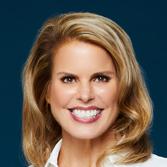
Curated special district-specific topics Hear from Dr. Elizabeth Lombardo at this year's CSDA Annual Conference and Exhibitor Showcase


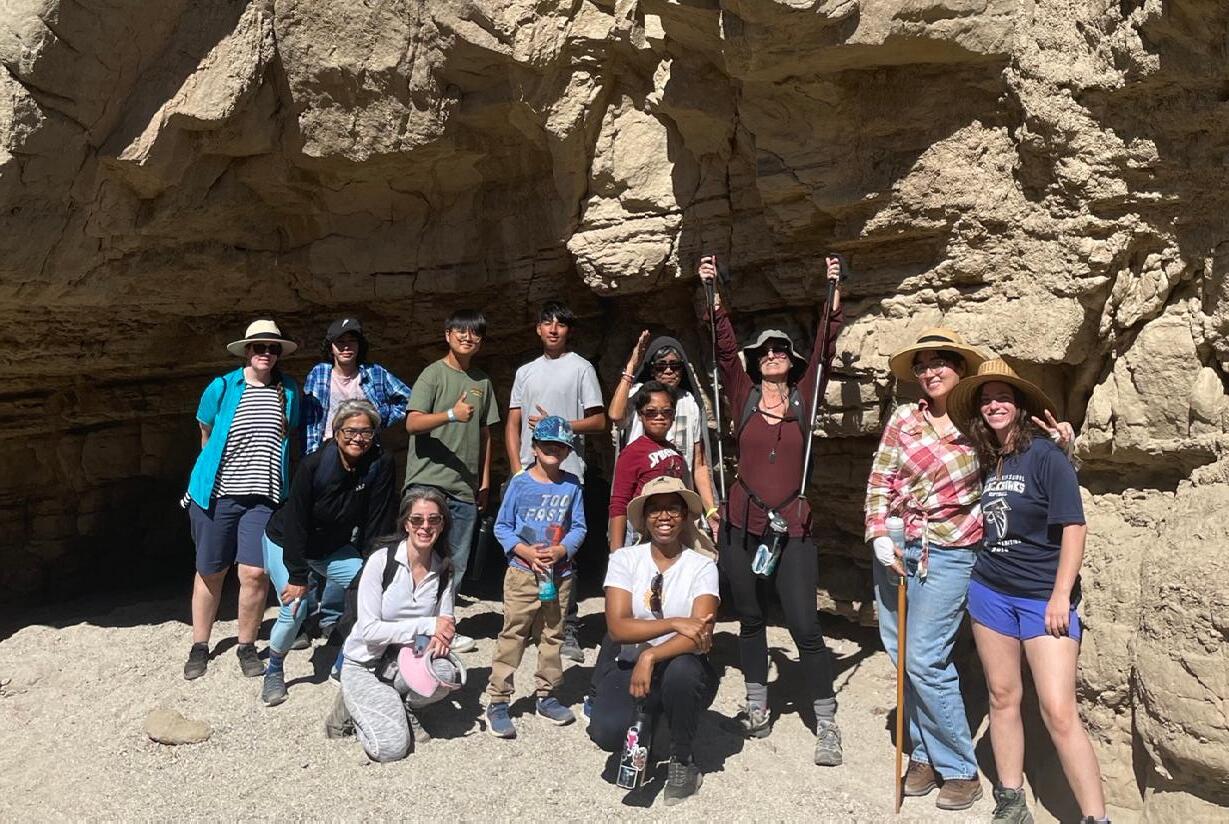
By Sarah Baltazar, Desert Recreation District
Desert Recreation District’s (DRD) Outdoor Adventure Programs offers FREE experiences made possible through generous grant funders: California State Parks, California Coastal Conservancy, and Coachella Valley Mountains Conservancy. Residents of all ages and abilities choose from a variety of offerings like hiking, mountain biking, rock climbing, coastal encounters, and community camping trips!
DRD’s 3-day 2-night Community Camping trips have been a fan favorite for community members since its debut last September 2023. These weekend trips are open to every nature enthusiast ages 8 and older with the desire to learn how to camp or spend time in our California State Parks soaking in the beauty and excitement of a weekend in nature. Community camping trips focus on bridging the gap between underserved communities and the great outdoors by providing all basic camping gear, groceries to
prepare meals, and even transportation for participants, if needed. Campers learn to pitch tents, work together to cook and clean up meals, and discover some of the Golden State’s most remarkable natural features at the state parks.
What makes the program extra special is our “Be Happy” Curriculum. Dr. Laurie Santos’ Science of Wellbeing course at Yale University reveals evidence-based ways to improve our well-being, explains our own misconceptions about happiness, and gives tips to help us live happier lives. On camping trips, we explore a few of her strategies with a nature-centric spin. Together we grow an appreciation for the natural world around us, disconnect from social media outlets, and practice meditation/mindfulness techniques to help us reduce our stress levels. Participants go home as real-life happy campers with newfound friends and a love for the outdoors like never before!
The idea of offering camping trips to Coachella Valley Residents was born when one of DRD’s Community Services Supervisors took The Science of Well-being course during the global pandemic. She noticed that living through the turbulence of a global pandemic brought with it new sources of stress, coupled with the observation that people just seemed less happy in our post-pandemic world. Through the course she discovered that there is a positive relationship between our happiness levels and connection to nature, so what better way to infuse joy into our communities than to bring free wellness retreats in nature to our valley residents and infuse the trips with many tips on how to feel happier each day when we return to our normal lives.
DRD has since taken various camping trips around Southern California with residents. In May, the DRD outdoor adventure team along with 20 residents set up base camp at Leo Carrillo State Park in Malibu. We explored sea caves and spotted sea anemones and starfish in the tidepools at the beach, practiced meditation techniques, and shared classic campfire desserts over the fire. These camping trips have served as a space for youth, families, elders, and all to indulge in their sense of wonder and cultivate community in the great outdoors. The camping trips have included seeing the Milky Way at Anza Borrego State Park in the fall season, or bathing in the cascades at Cuyamaca State Park after seeing a bald eagle fledgling leaving his nest. Whether people are first time or experienced campers, they all leave with a full and happy heart, and are all ready to be put on the waitlist if a spot opens on the next trip.
DRD staff that work on these outdoor adventure programs have been inspired by the continued success of these trips and the incredible feedback from the participants. We are building our community well-being one camping trip at a time. DRD is very proud of this program and the impact it is having. We can all use a little more happiness!
Desert Recreation District (DRD) is geographically California’s largest park and recreation district. Learn more about DRD at www.myrecreationdistrict.com.
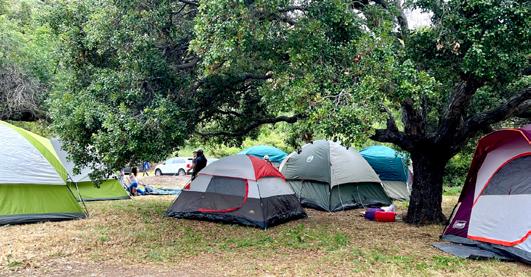
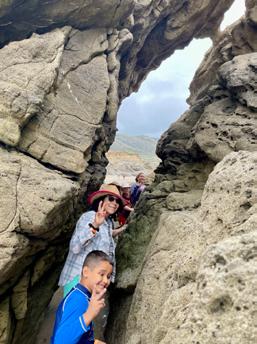
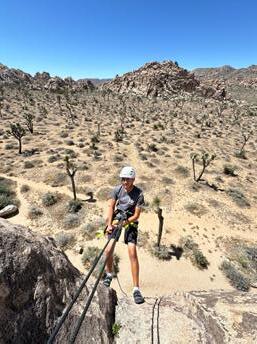
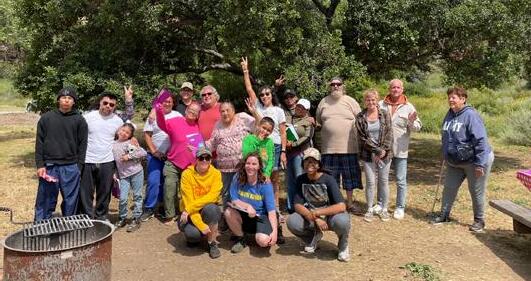
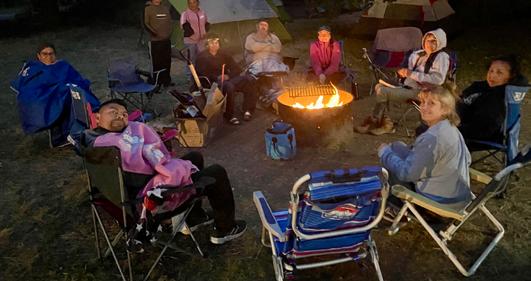


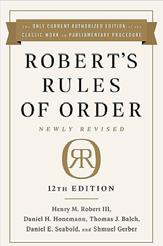
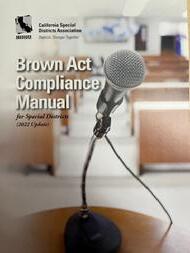
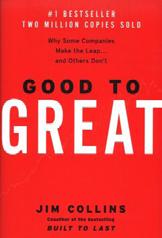


By Lauren Langer, Partner, Best Best & Krieger and Henry Castillo, Associate, Best Best & Krieger
The Brown Act requires most local government meetings in California, including special districts, to be open to the public. Not only can the public watch the proceedings, but the public must be given an opportunity to comment before any action is taken. Public comment is a critical component of Brown Act meetings, as decision makers should hear from constituents before making decisions that impact their communities.
While it is not uncommon for public speakers to be passionate and sometimes angry, there has been a nationwide trend whereby public meetings are increasing becoming more difficult to manage (especially with the introduction of zoom/telephonic participation). Public meetings have also become a target for intentional disruptors. In addition to the increased lack of civility and a rise in hate speech, many agencies have recently experienced protests at their public meetings. Although it may be an immediate impulse to put a stop to any type of hateful or offensive speech, it is important to have an understanding of the limits of public comment and when public comment may be stopped or restricted.
A Public Government Meeting is a Limited Public Forum
Once a government meeting is opened to public
participation, it becomes a limited public forum. A government entity can regulate a limited public forum by placing reasonable restrictions on the time, place, and manner of speech. It may also place restrictions on speech content provided the content-based regulations are viewpoint neutral and enforced that way. Time limits for public comment, reminding speakers to stay on topic, and moving general public comment to the end of the meeting are permissible, as long as these limitations are applied neutrally and not based on viewpoint.
Public Comment Has Both Brown Act and First Amendment
At every regular meeting, members of the public have the right to address the body on any item of public interest if that item is under the jurisdiction of the body. For agenda items, the public must be given an opportunity to comment before or during the body’s consideration of the item. In dealing with agenda items, the agency does not violate the Brown Act or the First Amendment when it restricts public speakers to the subject at hand. The agency is conducting a business meeting and has an interest in conducting the public’s business in an orderly and efficient manner.
Public comments that are critical of officials, staff, public policies, procedures, programs or services must be allowed, even if offensive, unless the speaker is, through their conduct, creating an actual disturbance of the meeting. Although some comments may become personal, the speaker has a protected right to provide them during their public comment. What is not protected, for example, is any type of threats or fighting words.
The agency has a legitimate interest in conducting efficient, orderly business meetings. Public comment is protected speech unless the speaker’s behavior actually disrupts, impedes or renders infeasible the orderly conduct of the meeting. Simply, a meeting is disrupted when the agency is prevented from accomplishing its business in a reasonably efficient manner. The point at which speech becomes disruptive is difficult to determine. The role of a presiding officer involves a great deal of discretion, and having clear, published rules of decorum can provide helpful guidance in these tricky situations.
Case law suggests that profanity alone is not grounds to remove a speaker from a meeting. In light of other instances where such speech has been protected, and in light of the Brown Act’s express commitment to permitting speakers to criticize a legislative body and its members, it is a best practice is to allow speech to occur unless the speech is actually disrupting a meeting. Hate speech is also not categorically prohibited in a public meeting. However, it is subject to the same viewpoint neutral limitations discussed in this article. The presiding officer should consult with legal counsel and even take a recess in order to consider how to best manage unruly public comment.
When limiting speech during a meeting, enforcement must be applied equally and not based on the content of the speech. Limiting public comment requires a very delicate balance. That balance takes a lot of coordination by officials, staff and the body’s general counsel before and during the meeting. Because of the protections afforded to speakers, it is best to have a plan before the meeting on how to address any actual disturbances during meetings.

Scan here to learn more and to order BBK’s inaugural 2024 Election Law Toolkit!

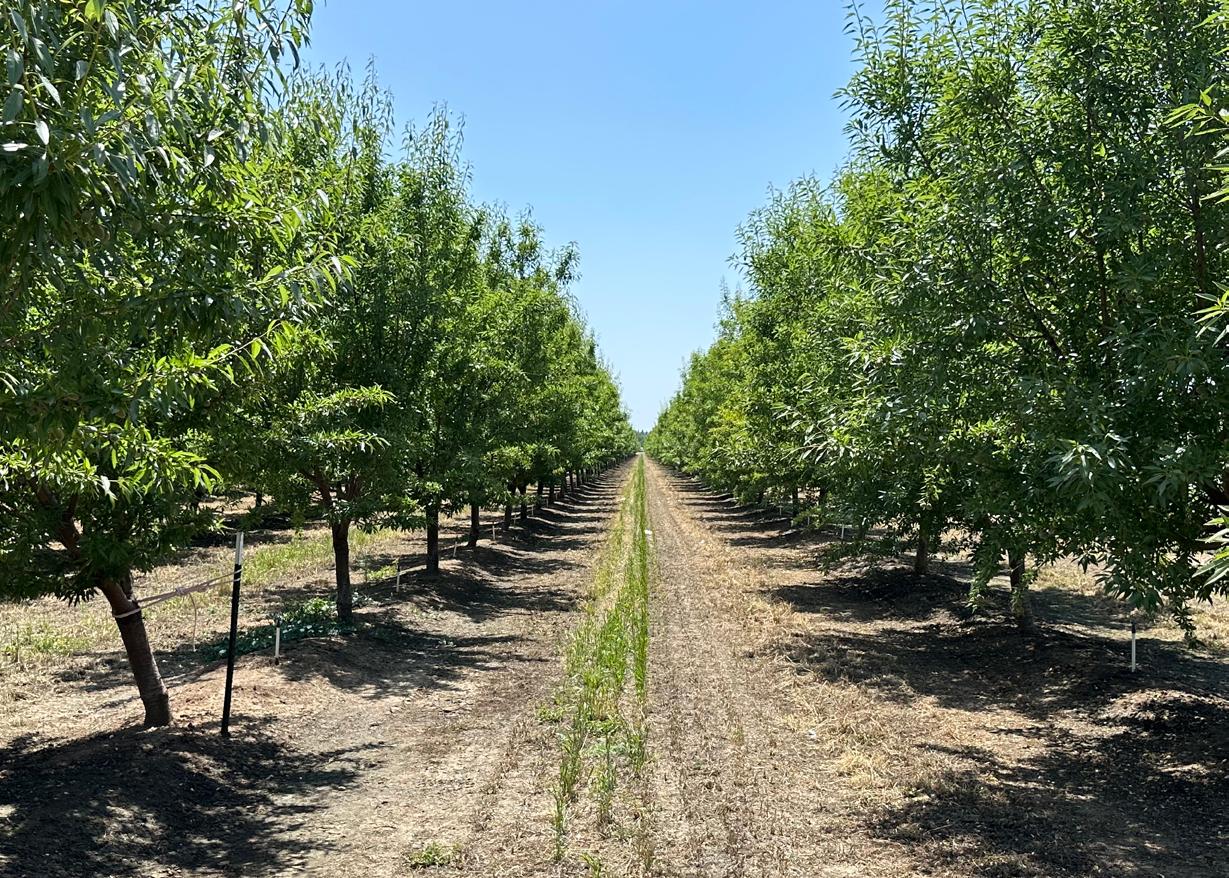
By Kristin Withrow, CSDA Communications Specialist
In the fertile agricultural hub that is the San Joaquin Valley, farmers are gathering to learn about groundwater sustainability and energy efficiency in farming practices. These gatherings are hosted by Stockton East Water District (SEWD), North San Joaquin Water Control District (NSJWCD) and South San Joaquin Irrigation District (SSJID) in an effort to distribute block grant money provided by the California Department of Food & Agriculture. The three districts are serving as program administrators for a pilot block grant through the State Water Efficiency and Enhancement Program (SWEEP).
The districts have joined together to coordinate education about the block grants and how they can align with efficiency upgrades. They began by setting up the grower’s meetings to help farmers understand the types of projects that qualify, and the application requirements. The SWEEP block grants will be awarded for projects ranging from $20,000 to $200,000, with applications being accepted in May, August, and November. But first, farmers must decide what they’re growing this season.
“Crop values are down substantially,” said NSJWD General Manager Steve Schwabauer. Farmers in the area traditionally have grown grapes, cherries, and all types of nuts. “Supply and demand is out of balance, which is affecting their decisions,” he explained.
SEWD General Manager Justin Hopkins explained: “During COVID when shipping was interrupted, nuts couldn’t be shipped and were stockpiled. Once the supply chain disruptions eased, the nut exports were shipped from those stockpiles, greatly reducing demand for the following year’s nut crop.”
The block grants have no matching requirements, so projects that include both water and energy efficiencies and are under $200,000 may be approved in their entirety. The group hopes to receive applications for projects that take surface water off their existing distribution systems and connects it to an existing on-farm distribution system. Once connected, the farmer would be able to utilize surface water to irrigate while maintaining the ability to switch
“For wine grapes, there is debate as to whether the oversupply is caused by too many grapes and wine production or too much imported inexpensive wine from Spain, Portugal and South America.”
Steve Schwabauer NSJWD General Manaager
to groundwater pumping in years without surface water availability.
The low hanging fruit (pun intended) would be a project on a farm near one of the districts’ surface water distribution facilities that has relied on groundwater in the past. Using grant funds to connect to the surface water distribution system would conserve groundwater and require less energy to pump.
The grower’s meetings have been hosted in each district’s area with training provided by the Stockton East Water District staff. “Technical advising is being provided by the San Joaquin Farm Bureau Federation and the UC Cooperative Extension,” said SSJID Water Resources Coordinator Brandon Nakagawa.
The districts are providing on-demand support to the program that ultimately will serve to ensure the districts meet their strategic plans: While each district has formed under slightly different agreements, all share the goal of ensuring sustainability in the San Joaquin Basin.
While each district has formed under slightly different agreements, all share the goal of ensuring sustainability in the San Joaquin Basin.
“The primary thing all of us do is provide surface water in lieu of groundwater, or try to recharge groundwater,” said Schwabauer.
This alliance between districts, in conjunction with the state and advisory agencies embodies the spirit of collective action toward a goal for the greater good.
As farmers navigate the complexities of changing resources and fluctuations in market conditions, they find support in the agencies that provide water resources with an eye toward the future of resilience and sustainability.


By Enriqueta Castro, CSP, Special District Risk Management Authority Risk Control Managerr
Bounce houses are a popular source of entertainment during festivals and other events. They provide hours of fun and healthy exercise, but they can also be dangerous. The Consumer Product Safety Commission (CPSC) reminds us that children have received cuts, sprains, broken bones, head injuries, and worse while playing in bounce houses. If this happens, does your District have risk management procedures in place to minimize the district’s liability?
This advisory provides guidance when citizens request to use bounce houses on district properties. It also applies to districts who rent bounce houses for their own sponsored events. Read on for valuable risk management tools regarding:
• Risk Transfer
• Special Events Coverage
• Permit Process
• Best Practices
Risk Transfer
Implementing the following risk transfer practices will assist in reducing the district’s risk exposure:
It is recommended the bounce house company (BHC) provide the district with a certificate of general liability insurance with limits of at least $1 million.
• The district should be named as an additional insured on the BHC’s commercial general liability policy.
• The contract between the permittee (the party requesting to use the bounce house on district-owned property) and BHC should include provisions to indemnify the district in the event of claims arising out of the use, set up, or dismantling of the bounce house.
• The BHC must have a current business license.
• The BHC must maintain responsibility for the proper set up of the bounce house.
• Consider the use of parental permission liability waiver for participants.
If the district owns a bounce house for their sponsored events, it is important to understand there is no risk transfer in place. A system must be in place to train designated employees on the manufacturer’s operating procedures and have comprehensive inspection, maintenance, and documentation procedures in place. continued
It’s important to check with your carrier to determine if bounce houses are covered under your General Liability policy. Also, consider requiring the permittee to purchase special events coverage, or the district may consider purchasing special events coverage and require reimbursement of the coverage costs from the permittee.
Consider implementing a bounce house permit process and/or adding provisions to your special events permit process. In addition to the outlined best practices below, requirements should include, but are not limited to:
• Assigning designated areas in parks to minimize hazards from adjacent exposures.
• Requiring compliance with the manufacturer’s operating procedures for the specified bounce house.
• Requiring the permittee to provide a copy of manufacturer’s operating procedures along with the permit application.
• Designating procedures for set-up/taken down time frames, such as between sunrise and sunset on the same day unless approved for multiple day event. (Lighting and security requirements should apply).


The following are considered general best practices; however, they do not override the manufacturer’s operating procedures:
• Power cords must be protected to reduce tripping hazards.
• Portable generators used to power a bounce house blower must have a ground fault interrupter.
• Adult supervision is always required from inflation to dismantling.
• Ensure the bounce house is staked to the ground with 18-inch stakes that are 3/8 inches in diameter. If additional stability is required, place additional weights on each corner.
• If strong winds or an approaching thunderstorm arise, immediately shut down and deflate the bounce house.
• Children should be similar in both age/sizes. Give each age group its own time.
• Do not allow children to sit down inside the bounce house while other children are bouncing.
• Parents/guardians should remove children’s shoes before using the bounce house.
• Regularly check for sharp or hard objects and remove from bounce house.
• No food or drinks in the bounce house.

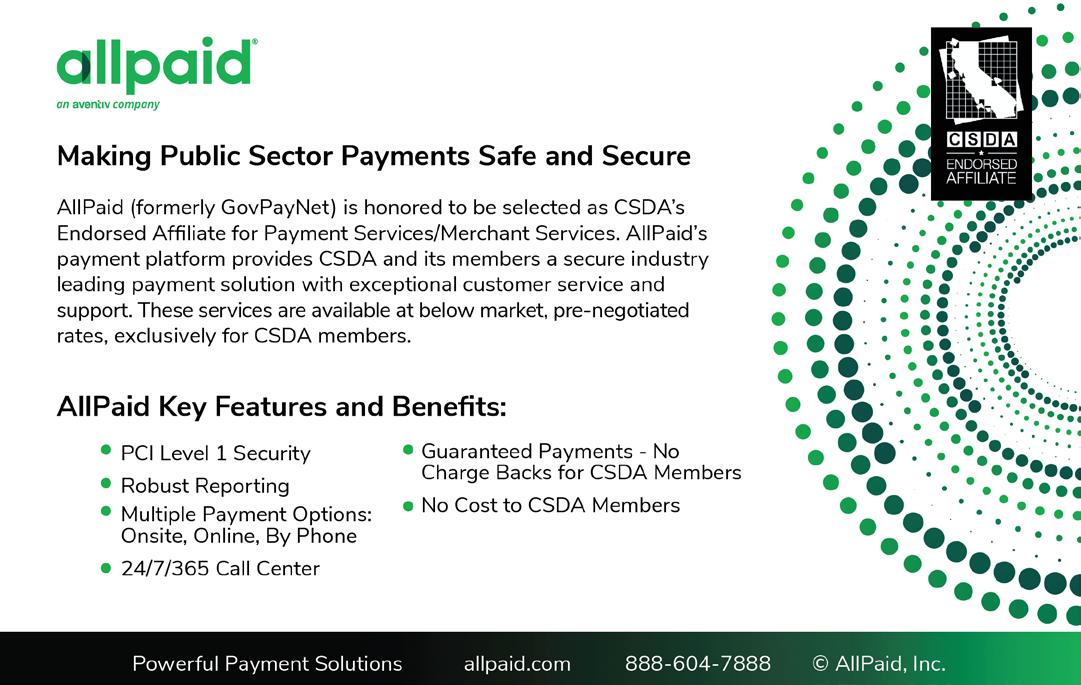
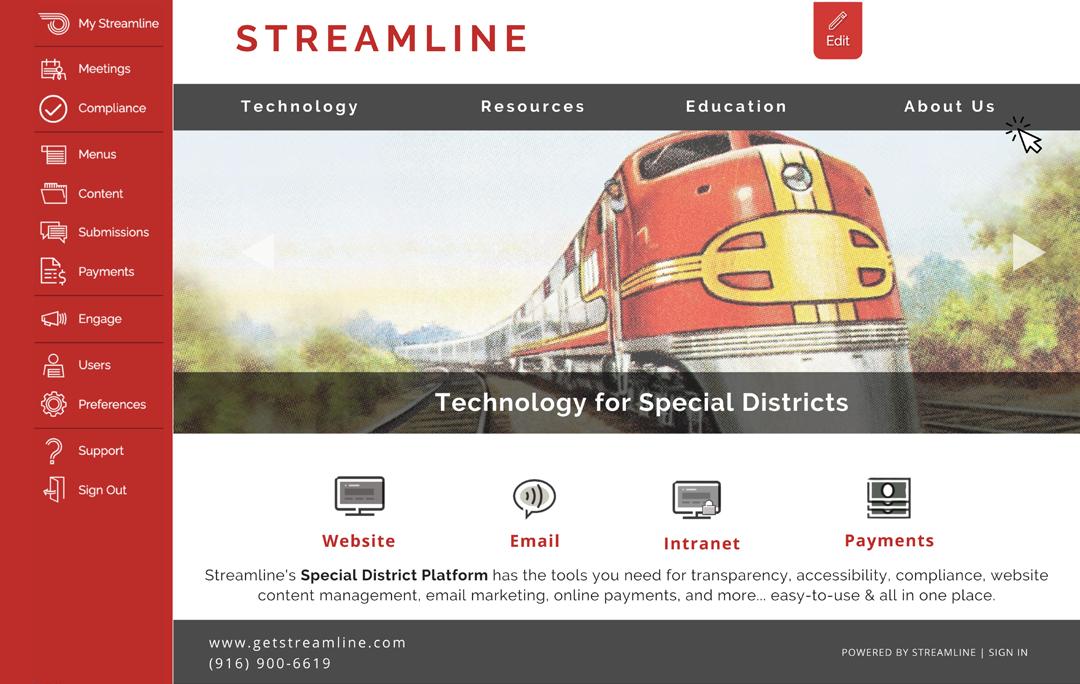

By Kevin Benson, Director of Application Development, VC3
In the news, you might hear hype and excitement about the wonders of Artificial Intelligence (AI). It can prepare your tax returns, respond to emails, and even make music. And there are also horror stories about AI replacing jobs, taking over decision making, or surpassing human intelligence.
In reality, AI mostly operates beneath the surface, similar to how it’s already a part of your life when you ask your phone questions or use GPS to get directions. That’s where its true potential for special districts lies.
Already, special districts are leveraging AI in subtle but powerful ways to become more efficient, improve decisionmaking, and offer tools to residents that empower their interactions with local government.
When you think about how we think, we use data. Let’s say you’re buying a wireless headset online. You might use ratings, customer reviews, and product descriptions. Past experiences and emotions come into play, but you leverage a lot of data to make a decision.
What if you devoted all your time for an entire year researching headsets, reading every rating and comment about every single headset that's available online?
Obviously, that would take way too much time— certainly not an efficient use of your time.
AI can do that. In seconds. Not a year.
Or, imagine asking a librarian for help writing a book about IT budgeting. A librarian can direct you to books, articles, and other resources—but you have to read them. Librarians—and search engines—do an efficient job of saying, “Here’s something that can help you.”
By contrast, think of AI like a researcher who has read all the books and articles. It’s not human, so it doesn’t understand what it reads, but it has literally processed the text. Instead of directing you to resources, it says, “I'm going to work with you because I've read all these resources. Let me help you get started with an essay that you can review, challenge, and tweak.”
That's the key difference. AI does not simply give us a result. It gives us a starting point.
With AI, time doesn’t matter—as much. Computers think the same way we think, but unlike us they think as if they have all the time in the world. And they perform such thinking in seconds. But they need data—the more, the better. Large volumes of high-quality data are a key factor that allow AI to solve problems and make predictions.
Special districts are often data-rich in key areas. Envisioning some practical applications of AI within special districts helps us recognize its potential.
• Public Service Delivery and Citizen Engagement: AI-driven chatbots and virtual assistants offer citizens 24/7 access to information and services, reducing wait times and improving overall citizen satisfaction. These tools can handle all sorts of queries, streamlining communication between the special district and the public.
• Water System Optimization: AI can significantly benefit water districts by enhancing their operational efficiency, improving water management, and ensuring regulatory compliance Predictive maintenance, water
quality monitoring, leak detection, demand forecasting, and compliance can all be enhanced by AI.
• Waste Management Optimization: Waste collection involves a lot of data—volume of waste generated, locations of waste bins, waste collection times, weather forecasts, road conditions, traffic patterns, etc. It’s possible to leverage that data with an AI tool to optimize collection routes and schedules, reduce fuel consumption, and more efficiently route for collection services.
AI has the potential to revolutionize special district operations, from efficiency enhancements to service delivery. While the journey to AI adoption may present challenges, an informed and forward-thinking approach will help special districts harness the full potential of AI to create tangible benefits for their communities.
https://www.vc3.com/localgovernment-partners/csda
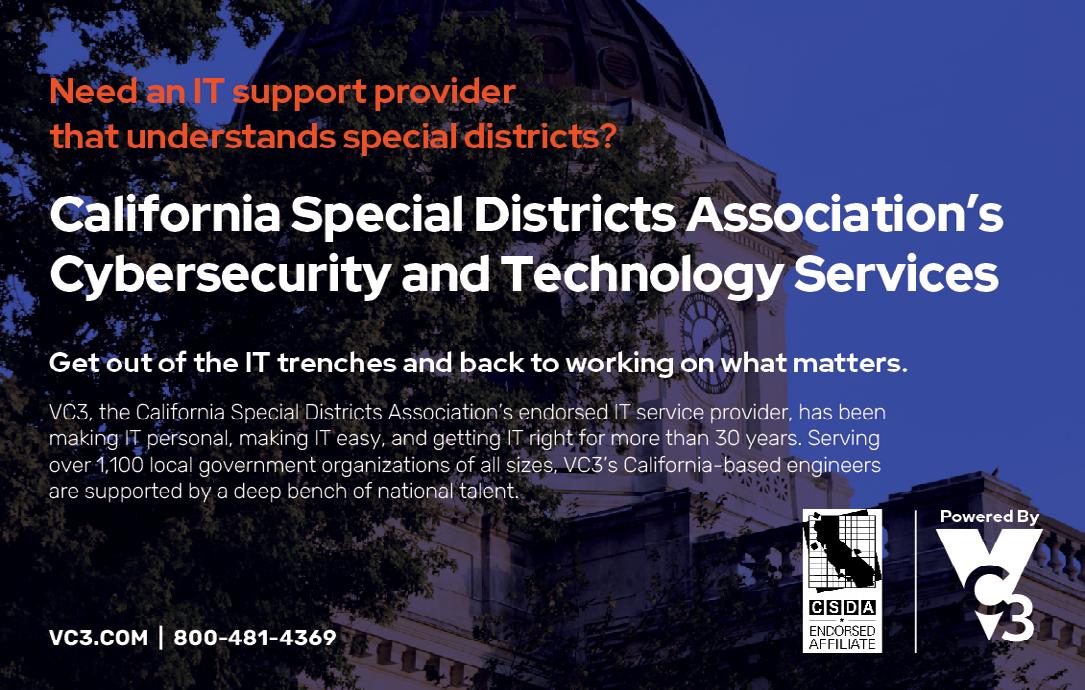
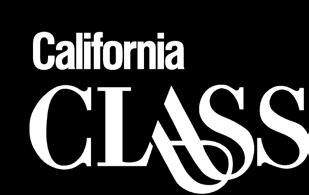








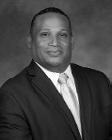




By Laura Glenn, CFA®, Senior Director of Investment Services, Public Trust Advisors, LLC
Thomas Tight, Managing Director, Public Trust Advisors, LLC
Cash flow analysis, also known as cash flow forecasting, is an estimate of receipts and disbursements during a given period. When executed properly, it can lead to the optimization of investment choices while aiming to ensure that liquidity needs are properly met. Monitoring cash flow, through the use of both historical data and forecasting tools, can assist a municipality in determining that it has adequate cash on hand to meet daily liquidity needs and allow the municipality to take funds that are not needed in the near future and invest them out longer term to seek a potentially higher yield (assuming a steep yield curve).
Municipalities that do not understand their internal cash flows - and have therefore been sitting merely in cash and cash-like products over the past two years - have experienced a welcome advantage of higher yields on the front end of the curve due to the Federal Reserve’s aggressive rate hike campaign to battle stubbornly high inflation. As we say in the south, “even a blind squirrel finds a nut once in a while.” A lack of attention to cash flows and maintaining more than ample liquidity has been
advantageous to a municipality while cash is king but that is not always going to be the case.
On the flip side, investing funds further out on the yield curve simply to “lock in higher yields” can be costly when not considering future cash flows. Those municipalities that had to sell longer-dated securities in 2022 and 2023, due to a lack of cash, were often forced to realize significant losses as rates had risen dramatically from when those securities were first purchased. A misunderstanding of cashflows has proven to be costly in these last few yearsas opposed to the time after the Great Financial Crisis.
As GFOA states in their best practices, “Cash forecasting helps governments recognize structural issues that might have a negative impact on their cash positions. When looking at the entire organization, governments use cash forecasting to coordinate spending patterns and mitigate potential shortfalls by using this information to improve revenue collection practices and align revenues and
expense cycles. Cash forecasting is therefore an essential tool for informed management decision making.”
The old adage “history repeats itself” applies to some extent when it comes to cash flows. For those entities where the primary source of revenue is property tax collections, the seasonality of these cash flows is known but will change based on assessed values. Historical cash flows, if adequately tracked, can be used to forecast the next fiscal year’s cash flows. Sales tax history can be used as well but may differ dramatically from previous years based on current economic conditions or other factors. Historical information can certainly be used as a starting point for cash flow projections and in conjunction with national and regional economic forecasts.
“GFOA recommends that governments perform ongoing cash forecasting to ensure that they have sufficient cash liquidity to meet disbursement requirements and limit idle cash. The cash forecast period should be at least a 12-month rolling period, as opposed to a fiscal year basis. The forecast within this rolling period should be divided up in at least monthly sections for most governments, or weekly or daily for larger and more complex governments.” The cash forecast should be updated at least monthly to ensure revenue collections and expenditures are trending as expected. This careful eye on the cash allows for wise decision making when it comes to cash and investments. Revenue projections that come in lower than expected
or an increase in expenditures due to unforeseen circumstances can provide valuable information suggesting a municipality allow investments to mature and roll the proceeds into cash to provide additional liquidity. Conversely, revenue projections that come in higher than expected or reduced cash outflows can provide a municipality with opportunities to invest longer term, seeking higher returns in a steep yield curve environment.
Whether managing funds internally or outsourcing to an investment manager, having a solid understanding of an entity’s cash flows is crucial to ensure proper liquidity that meets short-term cash needs thereby reducing the need for short-term borrowing and/or prematurely liquidating longterm investments to provide the requisite liquidity.
Disclaimer: All comments and discussions presented are purely based on opinion and assumptions, not fact. These assumptions may or may not be correct based on foreseen and unforeseen events. The information presented should not be used in making any investment decisions. This material is not a recommendation to buy, sell, implement, or change any securities or investment strategy, function, or process. Any financial and/or investment decision should be made only after considerable research, consideration, and involvement with an experienced professional engaged for the specific purpose. Past performance is not an indication of future performance. Any financial and/or investment decision may incur losses.
by CSDA Finance Corporation
For over 35 years, CSDA Finance Corporation has been providing California’s special districts with low-cost, competitively priced financing solutions.
Recently, the Nevada County Consolidated Fire District was able to realize substantial savings by financing their fire engine purchase through CSDA Finance Corporation. Here’s what Administrative Services Manager, Nicole Long, had to say about the experience:
“We worked with CSDA Finance Corporation on a loan for a “future” piece of equipment. Their consultants at Municipal Finance Corporation got us the best rate and were very quick to get documents and approvals in the limited time we had to work with. Because of their prompt response and quick work, we were able to obtain a $128,000 savings from Golden State Fire Apparatus.”
Does your district have a financing need? Our consultants and staff are here to help. Visit www. csdafinance.net to submit a quote request online or call 877.924.2732 for more information.


The role of a special district board member requires the nuance of district leadership intertwined with fellow board members from a variety of backgrounds and a comprehensive understanding of the community’s infrastructure needs, financial status and goals, and governance and educational requirements. It’s a pivotal role and is both an honor and a huge responsibility. Recognizing the critical importance of the role, the California Special Districts Association (CSDA) offers ongoing support through its Board Member Resources page.
Understanding the complexities of governance demands access to reliable, comprehensive resources. The Board Member Resources page is designed to guide you straight to the knowledge you need to excel. Whether a seasoned veteran or a freshly appointed or elected member, this centralized hub will help board members of diverse experience cut through the clutter and get right to the heart of what they need along their leadership journey.
At the heart of the page lies a span of educational materials meticulously crafted to hone your governance knowledge. From guidance on legal obligations to tutorials on effective leadership, board members can delve into topics tailored to fortify their understanding of the roles and responsibilities they uphold; or for those new to the role, introduce them to the intricacies of the position. With clarity comes confidence, and CSDA ensures board members are equipped with the essential knowledge for effective decision-making and governance. Among the technical expertise offered is also insight into the complexity of the relationship between board members, general managers and staff. As is often true in any organization, learning the roles and responsibilities of all members of an organizational structure is critical to bringing together a functional team that excels in each of their respective roles.
The Board Member Resource page serves as a conduit for connectivity, fostering a community of individuals dedicated to the betterment of their districts. Through webinars, and in-person educational events, board members can engage in meaningful discourse, exchange best practices, and forge connections. The page brings together a quick reference for the events designed specifically to attain knowledge and encourage the sharing of ideas amongst peers, such as the Special District Leadership Academy and our Annual Conference & Exhibitor Showcase.
As a special district leader, staying abreast of legislative developments is paramount: The Board Member Resources webpage offers timely publications such as:
• California Public Records Act Compliance Manual
• Board Member Handbook
• Brown Act Compliance Manual
• Special District Laws Reference Guide
CSDA resources empower board members to adapt to evolving regulatory landscapes with agility and foresight. Armed with knowledge, informed Board Members can navigate legal nuances with confidence, ensuring compliance while advancing the interests of their districts.


The National Special District Coalition (NSDC) and The Ferguson Group (TFG) are partnering to deliver comprehensive grant services to special districts across the country and that includes members of the California Special Districts Association (CSDA). Members of CSDA automatically receive access to many new resources!
This program and partnership provides grants services to better guide special districts through grant identification, preparation, and writing as well as help for districts to better understand the opportunities that exist and, most importantly, strategically position them to be competitive in the process.
CSDA publishes updates in our CSDA eNews that provide a recap of federal grant solicitations that were released to ensure you don’t miss out on any opportunities. Watch for these in this email to stay up-to-date and take advantage of the opportunities!
TFG has a database of over 2,000 successful grant applications from a variety of programs to help inspire and guide the preparation of successful grant submissions. Reviewing past applications also allows TFG grant experts
to identify trends in funded projects that can help frame how to present a project in a future application Members can access successful grant applications by requesting to view applications for a specific grant program through CSDA (membership@csda.net).
Members also have access to TFG’s Library of Grant Funding Guides and individual Grant Profiles and Summaries. Each Funding Guide provides an overview of grant programs and relevant information such as funding levels, match requirements, eligible applicants, and use of funds in a specific issue area.
TFG’s Grants Library also includes a robust database of grant profiles and summaries that provide the key information you need to match a program with your needs and build a winning grant proposal. Grant Profiles and Summaries present the information included in the grant solicitation in an easy-to-follow manner and augment it with additional background information on the program and the types of projects funded in the past.
There is so much more available for CSDA Members through our partnership with NSDC. Contact our Member Services & Communications Department to learn more and access the benefits available to you and your district!








Actuarial Retirement Consulting, LLC www.awenarc.com


AllPaid www.AllPaid.com
California CAD Solutions (CALCAD) www.calcad.com
California CLASS www.californiaclass.com
CPS HR Consulting www.cpshr.us
CSDA Finance Corporation www.csdafinance.net


Atkinson, Andelson, Loya, Ruud & Romo www.aalrr.com
Best Best & Krieger www.bbklaw.com
California Bank of Commerce www.californiabankofcommerce.com/


Enterprise Mobility www.enterprisemobility.com
GovDeals www.govdeals.com
Special Districts Risk Management Authority www.sdrma.org

Streamline www.getstreamline.com
Umpqua Bank www.umpquabank.com
Utility Cost Management, LLC www.utilitycostmanagement.com



SiteLogiq www.sitelogiq.com
Five Star Bank www.fivestarbank.com
Liebert Cassidy Whitmore www.lcwlegal.com
Richards Watson Gershon www.rwglaw.com
By Regean Ballo, CTP, VP/Government Banking Officer, Five Star Bank
Herlong Public Utility District needed a bridge loan and Sandy Seifert-Raffelson, the general manager of the district, was under pressure to get the loan resolved. “I reached out to Five Star Bank because I was appreciative of all the support they have shown toward special districts and the Special District Leadership Foundation in past years,” remarked Seifert-Raffelson.
When Seifert-Raffelson talked with the Five Star Bank team about the District’s situation, she was confidently told Five Star Bank could help. As promised, and more importantly considering time, the District received the bridge loan they were looking for. Seifert-Raffelson praised the support received by the entire Five Star Bank team throughout the loan origination process. Herlong
Brown Armstrong Accountancy Corporation
www.bacpas.com
CalTRUST
www.caltrust.org
Centrica Business Solutions
www.centricabusinesssolutions.com
Cole Huber LLP www.colehuber.com
Complete Paperless Solutions www.cps247.com
Eide Bailly CPAs
www.eidebailly.com
Kosmont Financial Services
www.KosmontFinancial.com
Laserfiche
www.laserfiche.com National Demographics Corportaion (NDC) www.ndcresearch.com
NBS www.nbsgov.com
Nossaman, LLP www.nossaman.com
Redwood Public Law, LLP www.redwoodpubliclaw.com
Slovak Baron Empey Murphy & Pinkney LLP www.sbemp.com
Stifel Investment Services www.sandrahedstromwheeler.com
Tyler Technologies, Inc. www.tylertech.com
Public Utility District has been working with Five Star Bank for over a year and Seifert-Raffelson says, “It has been the best experience ever. Moving to Five Star Bank has saved Herlong Public Utility District money in banking fees while also making the District money in interest income. It is always a joy when speaking with Five Star staff. I would highly recommend Five Star Bank to other special districts.”
Five Star Bank is committed to serving special districts with customized banking solutions that will meet each client’s unique needs as we recognize no two districts are the same. How can we help you? Contact Reagan Ballo at rballo@fivestarbank.com or at 916-660-5752.


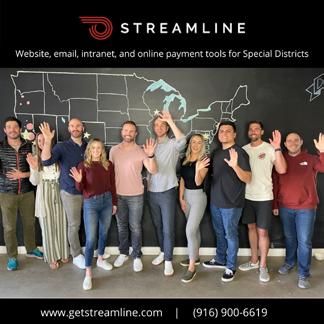
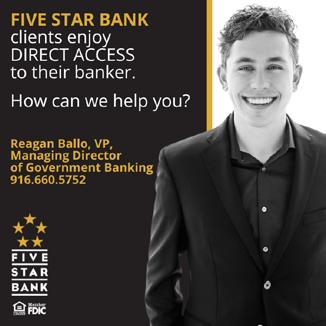
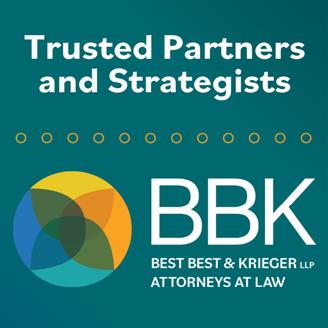
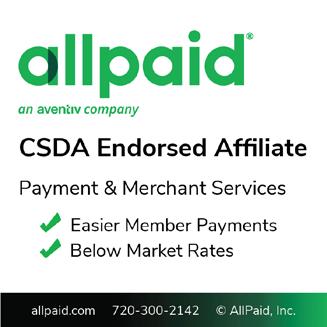

(805) 903-1065 | (877) 816-1231 sandra.wheeler@stifel.com www.sandrahedstromwheeler.com

